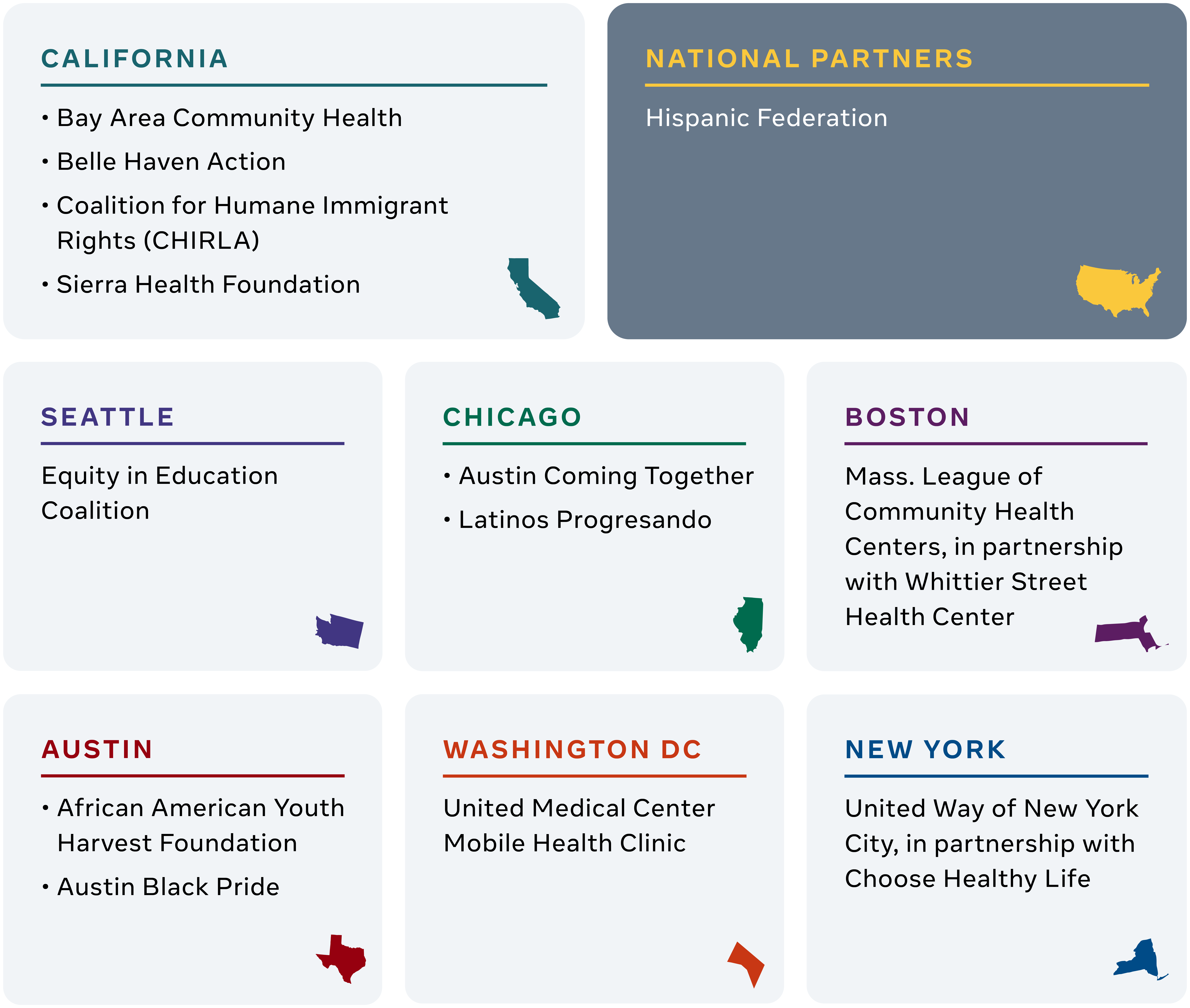As part of our ongoing work to support equitable access to COVID-19 vaccines, we’re launching new efforts to help Black, Latinx, Native American, Asian American, Pacific Islander and other underserved communities get vaccinated in the US.
We’re expanding the program we launched with California Governor Gavin Newsom to support pop-up vaccine clinics in low-income and underserved communities. In addition to funding more pop-ups across California, we’ll expand to Austin, Boston, Chicago, New York, Seattle and Washington, DC, supporting communities near where we have offices.
We’re also expanding our efforts at our headquarters, where thousands of people have been vaccinated at a mass vaccination clinic since April. To make access even easier, we’re teaming up with local nonprofits like Belle Haven Action and replacing the clinic at our office with a mobile truck that will park at nearby schools and community spaces every Friday and Sunday. Everyone who receives a vaccine will have the option to pick up a free box with a week’s worth of fresh and organic groceries, and several free meals prepared by Facebook chefs.
Learn more about our local partners.
We’re also continuing our efforts to make it easier for people to get information about how to get vaccinated. For example, the CDC recently launched a Spanish-language vaccine finder on WhatsApp. Last week on Instagram, we sent notifications to everyone in the US with a link to vaccine.gov. And since we launched COVID-19 vaccine profile frames earlier this year for people to share they’ve been or are planning to get vaccinated, more than 5 million people in the US and over 11 million people globally have used them.
Finally, we’re partnering with PEN America to offer media literacy training sessions for underserved communities around the US. Their Knowing the News program equips people with skills to evaluate the information they read about COVID-19 and vaccines.
We’ve already seen how these trainings can be effective in helping people spot misinformation. A Stanford study from the first year of our MediaWise for Seniors program with the Poynter Institute found that:
- 70% of participants researched headlines to check for accuracy after the course, compared to 3% of participants prior to taking it and no change from the control group.
- 85% of participants accurately classified stories as true or false after taking the course.
- 87% of participants accurately judged headlines as true or false after taking the course — a 22% improvement from before they took the course. The control group showed no significant improvement over the same timeframe.
“PEN America has long raised the alarm about the threat disinformation poses to civic discourse and democracy; in the context of the pandemic, we now see how it also threatens public health and the revitalization of the economy. And we have always believed in the importance of solutions that inoculate individuals against disinformation, empower trusted messengers to be disinformation disruptors within their communities, and respond creatively to these mutating threats. With communities of color and other underserved communities disproportionately affected by both targeted disinformation campaigns and the pandemic, it is important that we continue our disinformation defense work this year by offering free, accessible media literacy trainings and multilingual resources tailored to stemming the spread of misleading content about COVID-19 and vaccines.” – Dru Menaker, PEN America Chief Operating Officer
Vaccine acceptance has increased considerably according to the US COVID-19 Trends and Impact Survey conducted by Delphi Group at Carnegie Mellon in partnership with Facebook. However, significant disparities in vaccine uptake and information about how to get vaccinated remain. This suggests that improving access to vaccines — and understanding of how to get them — is increasingly important.



